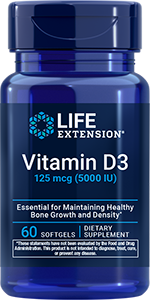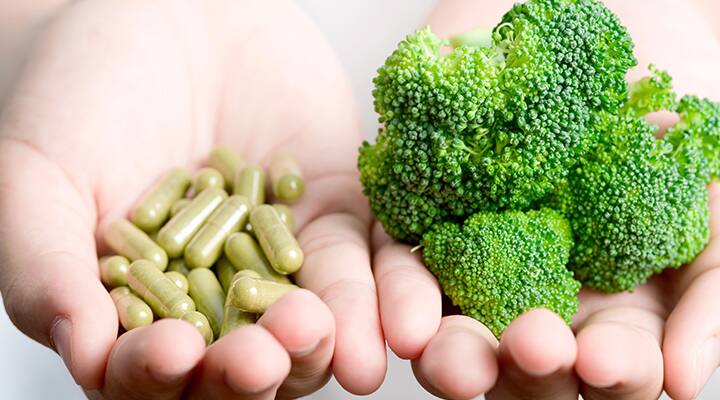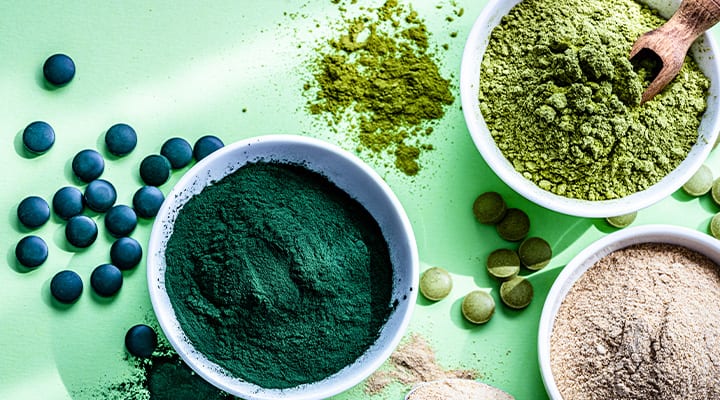
What Are Non-GMO Supplements? All You Need to Know
Published: May 2022
We know staying healthy is about our daily choices. For that reason, many of us are choosy about what we put into our bodies, particularly when it comes to food and supplements—and that means looking for non-GMO products that complement our lifestyle.
But shopping for supplements that contain no “genetically modified organisms” involves a lot of label reading! There’s “certified organic,” bottles that boast a Non-GMO Project verified label, and others that simply say “organic,” “Non-GMO,” “GMO-Free,” or “organic Non-GMO.”
So what does all of this mean? Differentiating between all of these labels can make you feel like Dorothy leaving Kansas and entering an overwhelming world where it’s hard to know what to believe.
But fear not! We’ve put together a guide that’ll empower you to make the healthiest and safest supplement choices. So, let’s follow our “yellow brick road” to find supplements that meet the strict criteria you’re looking for.
What does “non-GMO” mean in supplements?
If you think non-GMO supplements are made with non-genetically modified organisms, you’re correct…that’s exactly what “non-GMO” means! But let’s take a step back: what is a GMO? It’s an organism, such as a plant or animal (even viruses and bacteria), whose DNA has been modified through genetic engineering methods. In other words, modified organisms can have new genetic material (of a different species) that confers specific traits that may or may not have occurred naturally.
When a product is non-GMO, it means that every ingredient is obtained from a non-GMO source; add just one ingredient that’s been in some way genetically altered, and it loses non-GMO status.
Let’s say you’re looking for a vitamin D softgel supplement which can be sourced from lanolin found in sheep’s wool—a form of cholesterol obtained from lanolin and can be exposed to UV to create vitamin D3, the body’s preferred form of the sunshine vitamin. If the sheep in question happens to be genetically modified, then the supplement would also be a GMO supplement.
While most GMO crops in the US are used for animal food, it’s likely many consumers are buying multivitamins and food products made with GMO ingredients. GMO crops have been around since the mid-90s, after all! Today the GMO seeds used to grow most foods have been genetically engineered to resist chemical herbicides, like glyphosate, used to target unwanted weeds—thanks to genetic modification, GM crops can survive the application of these chemicals.
How do you alter DNA?
Farmers have used traditional methods to create new variations of a species. That’s how corn with a range of colors and sizes came about. But traditional methods can take a long time. Scientists in the 70s developed genetic engineering methods that allowed them to create similar changes while speeding up the process.
Of course, genetically modifying DNA is intricate and meticulous, but in general, the idea is to:
- Identify genetic information that has the desired trait. For example, use a gene from a bacterium that confers resistance to insects.
- Copy the gene with the desired information—the genetic code for a protein that kills insects.
- Insert it into another organism’s DNA, such as corn. Scientists insert the bacterium’s gene into the DNA of corn, making GMO corn that produces its own pesticide. To do this, scientists may use bacteria as a vehicle to insert the trait of interest in the desired plant cells.
- Grow the modified organism and hope for the best—cue in pesticide-resistant crops.
When scientists modify genetic material, they can’t control where the gene goes after it’s inserted—and the thing about genetics is that location matters. If the gene inserts itself in the wrong location, it can create mutations, producing compounds that could lead to human health impacts.
Pro tip: Foods, dairy products like probiotics, vitamins like B12, or nutrients like lecithin sourced from GMOs are not considered organic or non-GMO.
Non-GMO vs. organic supplements: What’s the difference?
Products with an organic certification are inherently non-GMO, but not all non-GMO products are organic. “Organic” is a term that refers to several things:
- The produce or animal products come from agricultural growing methods that follow ethical practices like crop rotation that promote resource cycling, ecological balance and conserves nutrients.
- The growers meet strict standards regarding pesticides, fertilizer and no use of growth hormones.
- Soil quality and animal raising practices follow guidelines defined by the U.S. Department of Agriculture’s (USDA) National Organic Program for certification.
Produce with a Certified USDA Organic label is certified to meet organic standards and has grown in soil clean of pesticides and synthetic fertilizers for at least three years before harvest. Organic meats and other animal products come from animals raised in living conditions tailored to their natural behaviors, such as access to shade and space for exercise, fed 100% organic feed and forage, and managed without antibiotics or hormones.
Pro tip: Note that some products will say “organic” but do not bear the “certified organic” label. This means these organic production processes have not been verified by the USDA, a process that can be pricey for smaller farmers.
Explore Our Best General Health & Wellness Supplements
Non-GMO vs. Non-GMO Project Verified
A product that is made without genetically modified organisms that does not follow the above criteria can therefore be non-GMO without being certified organic. And unlike the “certified organic” label, sometimes government agencies that oversee food labeling will allow food manufacturers to voluntarily label their products as non-GMOs, without the same scrutiny. In these cases, companies are encouraged to have the products third-party tested, but the recommendation of verifying a non-GMO claim isn’t legally enforced.
Food manufacturers that choose to work with the Non-GMO Project follow the rigorous step-by-step processes for product verification. The non-profit organization works to promote a high-quality non-GMO food system, protecting consumers’ right to know what’s in the products they choose to purchase.
Is GMO-free the same as non-GMO?
No. A non-GMO label means supplements and food products are made with ingredients from plants, animals, or other organisms whose genetic material hasn’t been artificially modified. In contrast, a GMO-free product contains one or more ingredients that may come from a genetically modified source but have no traceable amounts of GMO in the product.
For example, say you’re buying vitamin C gummies. When you read the label, you notice it says GMO-free. This means an ingredient (maybe it's the ascorbic acid) is derived from a GMO source, but since there’s no traceability of GMOs in it, it is GMO-free—it doesn’t mean it’s non-GMO because it comes from a GM source. If you’re looking for products without any GMOs, stick with the “non-GMO” label.
Are all vitamins non-GMO?
No. As with any dietary supplement, whether a vitamin is GMO or not depends on the production process. If a vitamin or its chemical precursors are obtained from GM foods, then the vitamin is not considered non-GMO.
Are GMO foods in the grocery store?
Genetically modified crops help reduce the overall cost of food—so the price and costs of ingredients are less than non-GMO products. But only a few GMO products are available as whole produce.
Most GMOs are used for other products like supplements and vitamins, clothing, plastics and more. Here are some examples of common GMOs:
Corn
Canola
Soy
Sugar beets
Corn starch
Corn syrup
Pro tip: A gluten-free label does not mean the product is all-natural or non-GMO.
What are the benefits of non-GMO supplements?
According to the Food and Drug Administration, both GMO and non-GMO supplements provide the same amount of nutrients and confer similar benefits.
USDA-accredited organic foods, which are inherently non-GMO, have been found to have a healthier nutrient profile and have been associated with supporting overall health, such as better weight management.
Non-GMO foods and supplements may also be more beneficial for the environment. The GMO process may result in genetic cross-contamination of GMOs with naturally occurring crops, and GMOs may also compete with natural crops for growth. However, these impacts are thought to be a result of human error.
In either case, by choosing non-GMO and organic supplements (and other products), we can help reduce these impacts.
How can you tell if a supplement is non-GMO?
Now that you understand the difference between organic, GMO and non-GMO supplements, you can “pull back the curtain” and make educated choices on your next clean eating shopping trip.
Start by actively reading the label and looking for logos that support non-GMO and organic claims. You can take a step further and contact the company to ask about the source of the ingredients. Look for companies you can trust that readily share this information with their customers.
Pro tip: Most of Life Extension® products are non-GMO.
On January 1, 2020, the USDA implemented new rules for labeling GMO products, with a mandatory compliance date of January 1, 2022. If you’re shopping for non-GMO supplements and foods, be on the lookout for the following labels: organic, non-GMO verified (look for the butterfly), and bioengineered—the new logo for GMOs.
References
- Brooks, Graham et al. “Environmental Impacts of genetically modified (GM) crop use 1996-2018: Impacts on pesticide use and Carbon Emissions.” GM Crops Food, October 2020, https://pubmed.ncbi.nlm.nih.gov/32706316/
- Girma, Haile et al. “The Effects of Genetically Modified Organisms (GMO) on Environment and Molecular Techniques to Minimize Its Risk.” American Journal of Polymer Science and Technology, December 2020, https://www.sciencepublishinggroup.com/journal/paperinfo?journalid=316&doi=10.11648/j.ajpst.20200604.11
- Glibowsky, Pawel. “Organic Food and Health. Rocz Panstw Zakl Hig., 2020, https://pubmed.ncbi.nlm.nih.gov/32519524/
- “Bioengineered Foods.” US Department of Agriculture. https://www.ams.usda.gov/rules-regulations/be/consumers
- “Crop Rotation Practice Standards.” U.S. Department of Agriculture, https://www.ams.usda.gov/grades-standards/crop-rotation-practice-standard
- “From Farm to Fork: Clearing Up the Confusion About Organic and Non-GMO.” NSF, July 2021, https://www.nsf.org/blog/consumer/clearing-confusion-organic-non-gmo-labels
- “Food Labeling.” USDA National Agricultural Library, https://www.nal.usda.gov/legacy/aglaw/food-labeling
- "GMO Crops, Animal Food, and Beyond.” U.S. Food & Drug Administration, https://www.fda.gov/food/agricultural-biotechnology/gmo-crops-animal-food-and-beyond
- “How GMOs Are Regulated for Food and Plant Safety in the United States.” U.S. Food & Drug Administration, February 2022, https://www.fda.gov/food/agricultural-biotechnology/how-gmos-are-regulated-food-and-plant-safety-united-states
- “Organic 1010: What the USDA Organic Label Means.” U.S. Department of Agriculture, https://www.usda.gov/media/blog/2012/03/22/organic-101-what-usda-organic-label-means
- “Organic Regulations.” Agricultural Marketing Service, https://www.ams.usda.gov/rules-regulations/organic
- “New GMOs” NonGMOProject, https://www.nongmoproject.org/
- “Science and History of GMOs and Other Food Modification Processes.” U.S. Food & Drug Administration, February 2022, https://www.fda.gov/food/agricultural-biotechnology/science-and-history-gmos-and-other-food-modification-processes
- “Soil Quality.” USDA Natural Resources Conservation Service, https://www.nrcs.usda.gov/wps/portal/nrcs/detail/national/technical/nra/rca/?cid=nrcs143_014198 - factors
- “Vitamin D.” National Institutes of Health, https://ods.od.nih.gov/factsheets/VitaminD-HealthProfessional/
- “What Is GMO?” NonGMOProject, https://www.nongmoproject.org/gmo-facts/what-is-gmo/







